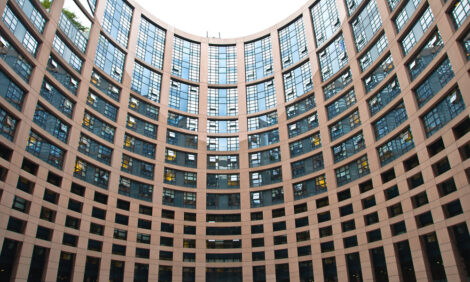



Market Preview: People Drive Economics
US - Weekly U.S. Market Preview w/e 9th December, provided by Steve R. Meyer, Ph.D., Paragon Economics, Inc.I was asked recently to make a presentation to an industry group on "The Economics of Today's Pork Industry," and it set me to thinking about what I normally do for this column as well as other work. While I do have degrees in agricultural economics, and I do use economic theory and research techniques in my work and my writings, it struck me that the "economics of today's pork industry" is really a very different topic.
Market and price analysis certainly uses economics. I and other analysts consider demand, supply, price transmission, elasticities, etc. in much of what we do. But in most cases we deal with the "results" end of economics simply because the "results" of economics are what matters to our clients. From time to time it may be profitable, however, to deal with economics in more of an "input" or "motivator" point of view.
In its most general form, economics is defined as:
"The social science that deals with the allocation of scarce resources among alternative uses."
The definition contains three key dimensions.
-
Economics is a social science. Now I know that the real shock value of that statement for many of you is that economics is a science at all, and we don't have the space for that discussion in full. I mean, just because we don't wear lab coats and have test tubes and . . . sorry, we economists get real testy on this point. No, the more important aspect I think is the word "social." Regardless of those stereotypic jokes about economists' personalities or lack thereof, economics is really about people. It deals with the tastes, preferences, needs and means of consumers, and the decisions that people make in supplying goods and services through firms. Everything that we see -- supply, demand, prices, etc. -- flows from the motives and actions of people.
-
Resources are scarce. That doesn't mean that there aren't enough right now, but it does imply that the supply of everything is finite. That finite point may be so far from where we are right now that it doesn't matter (i.e. there is a lot of nitrogen in the air!), but it is still finite. It also doesn't mean that what is scarce today will remain so. Human ingenuity is a marvelous tool for making more of what we really need. Malthaus, an 18th century economist, observed how rabbit populations eventually declined due to food shortages, and postulated that the world would soon run out of food and other essential items and thus put a limit on population. He underestimated the power of the human mind to invent things and methods to get more out of a finite set of resources. This comes to mind frequently these days as we discuss energy -- if people are indeed left free to use their ingenuity.
-
Economics involves allocation. One of the forms of efficiency that economics accomplishes is allocative efficiency -- deciding how much of something to use in the production of something else which then may be allocated across uses as well. By definition, allocation is a discriminatory process unless supplies are large. One use or person will get an item, while another will not, and economics says that the use or person that can assign the higher value is the winner. That's a pretty important concept right now when we think about corn.
Economics Not a Perfect Science
The real question is whether "economics" are allowed to fully function in each of these three roles. History has shown us that markets work. Allowed to function freely, they will generate price signals that tell firms to produce more or less and consumers to consume more or less. They will also result in least-cost production, innovation and, in the case of an item that is no longer needed, obsolescence and failure.
But they don't always work perfectly. Pollution is a cost to society but, if not regulated, may impose no cost on the polluting firm, and thus, not be covered by the price of the firm's output. Litter and trash are costs of consumption but may not be factored into the consumption decision unless we impose a cost to littering. Governments deal with such "externalities" by making the rules by which economics must play, and by discouraging some activities (prohibitions, regulations, taxes, etc.) and encouraging others (subsidies, tax incentives, etc.).
Think of these as you contemplate today's economic climate for livestock and meat. What are the people (both here and abroad) saying in terms of demand and supply? What resources are scarce? Can we make more and, if so, how? What is the highest and best use of those scarce resources? How is government influencing this allocation? For whom is it good or bad? Is it the best we can do?
We're not going to all agree on the answers to those questions, but we can likely learn more collectively than individually, unless, of course, we're more like rabbits.










